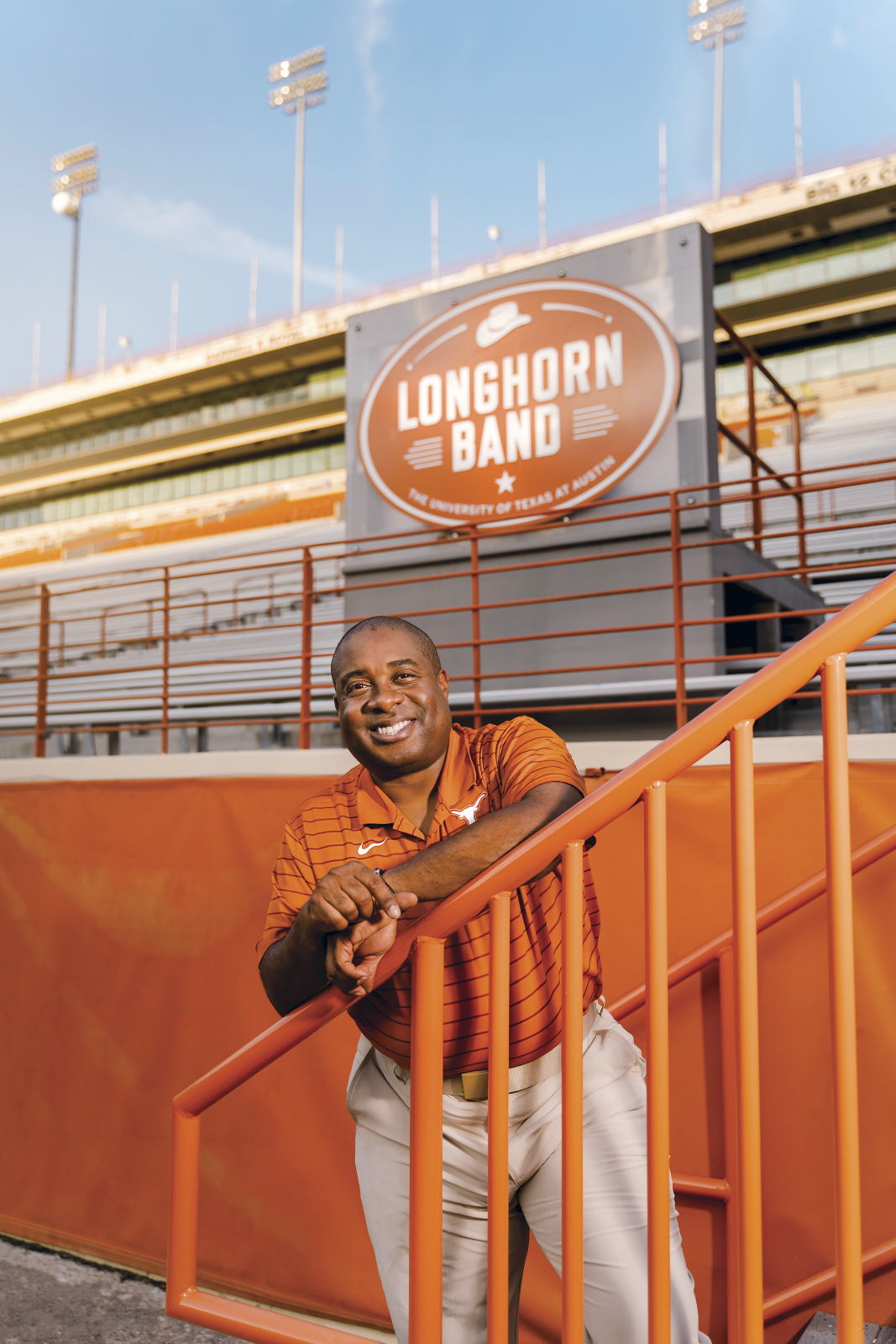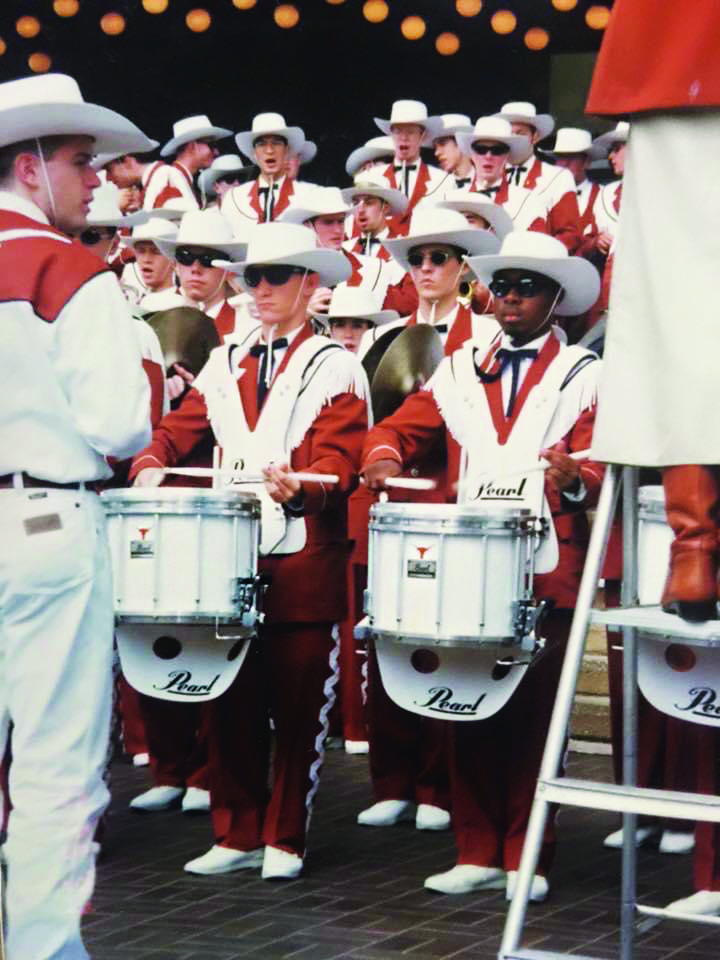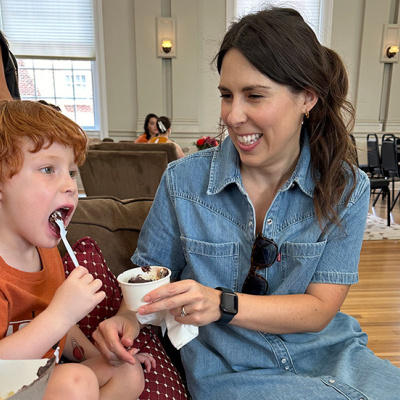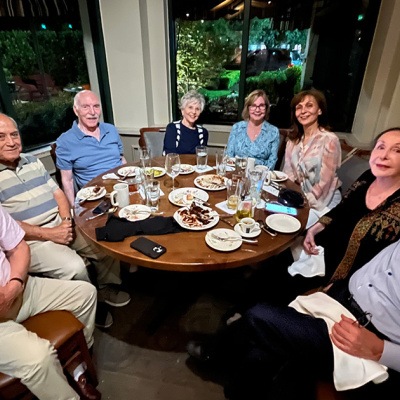Alumnus Cliff Croomes Steps into His Role as Director of the Longhorn Band

According to his grandmother—admittedly a biased party—Cliff Croomes was always the most well-behaved baby in church. That is, until the choir started singing. “Then there was no holding me down,” he laughs. “I think music has always been a part of me—just sound in general; it excites me.”
We’re catching up over video chat in late June on what happens to be exactly one month into Croomes’ new gig as UT’s associate director of bands and director of the Longhorn Band. It has been a transformative week; after more than a year of an eerily quiet and desolate campus, Croomes has started to hear snippets of music wafting through the halls of the Butler School.
An alumnus of the Longhorn Band, Croomes, BA ’01, was most recently working as assistant director of bands at Louisiana State University, where he earned his master of music and doctor of musical arts degrees. It’s a job he never imagined leaving.
“I thought if there’s one job I’d leave here for, it’d be Texas,” Croomes says. “And that just happened to be the job that called.”
What’s it like to be back on the Forty Acres?
To be here, on the faculty, it seems unreal to me. To be in the office that my director was in? It’s like a dream come true. When I got the call about the job, I was on my computer writing music for LSU, getting ready for the fall. And you know of course there were the questions: “What are your feelings about ‘The Eyes of Texas?’” I told them, “If that’s the decision, we’re playing. We’re going.” And then when they made the offer I was like, “I can’t believe this is going to happen, but it’s happening.”
It’s a time of nationwide upheaval around racial injustice, and at UT, there has been a lot of controversy around the song. On top of that
you’re the first Black director of the band. How are you managing all that pressure?
It feels honestly like this was my purpose. My sister always asks me, “So is this the job? Is this the job?’ And I’m like, “No, you know.” Every job I got was an honor. And a lot of jobs that I’ve had, I’ve been the first Black person to be in that job. So, while that’s an honor, I’m kind of used to that space and I hope that soon that “first” thing will not be a thing for the next generation. I recognize the moment, but everything I’ve done has led to me being in a position and having the disposition to be the person for this job.
What is your philosophy when it comes to managing different opinions across Longhorn Nation?
Well, I have to say, most of it is my love for the university and everything that it has given me. There’s no way that I’m not going to do everything in my power to make sure that we’re represented in the best possible light, and that UT shines the way it’s supposed to. I’m prepared to take those hits, but I’m also prepared to be a sounding board for people—and the people who just need to express their feelings? I’m prepared for that, too. I’ve got a lot of different hats in my office and whichever one I need to put on at whatever time, I’m ready.
When you say you’re prepared to take the hits, is that because you feel so grounded about this being your purpose?
Yes, absolutely. It’s a million in one shot that I would ever be sitting in this chair right now, but something has guided my steps and put me where I’m at. I understand with a position like this comes great responsibility, but I’m not shying away from the moment. People ask me, “So what’s going to be different?” We’re going to take a lot of the traditions of UT and listen to the students and see what it is that they feel like, repertoire-wise, would make the band more suitable to their own enjoyment. We’re going to play some things that people have not heard the band play—a little bit of a modern take, but, you know, we’ve got modern students.

Can we get a sneak peek?
[Laughing] Well, I gotta keep everything under wraps because when it happens, it’s just gonna slap that hard.
How do you build trust with your students?
There’s no magic pill for that. It’s just being a human being and allowing them to express themselves little by little, opening up, asking them questions outside of them as a musician. I think more than anything, the music is a vehicle to build relationships.
Beyond mixing up the repertoire, what does progress and positive change look like to you?
A lot of it is going to be having ongoing conversations with the students about every aspect of the program. Like, “What was good about gameday? How can we make this experience better? How are rehearsals going? What do we need to adjust?” And we’ll hopefully get it right. But even when you get it right one day, the next day it’s going to change and then there’ll be something else you have to address. It’s about having that growth mindset of being willing to listen to the students and take their voice as important as it should be.
What, in your opinion, is the role of the band?
The band is like the biggest audible support system for our athletics programs. The pageantry of college … having fans that play live music in support of your cause? That’s what makes college sports great. That’s our role, is to be fans, and even when the team is down, we’re behind them.
And what’s your role as director?
I’m the only one who doesn’t get to play. So, I’m just a facilitator for them. What I would like to happen is that they take on a lot of the ownership of the program and I’m just kind of steering it in the right direction—paying the bills, making sure they have what they need to be great. I just want to play a role in them having the time of their lives.
Was playing in the Longhorn Band the time of your life?
Absolutely. I was here when Ricky Williams broke the record. And inside DKR, it was just five minutes of solid roar. It was pure joy.
I bet it’s going to feel great to be back out there again.
And to see it through the students’ eyes? You know, Christmas is so different when you have kids, because you get to see them experience it. I feel just like that.
This interview has been edited and condensed.
Credit: Regina Blancas






